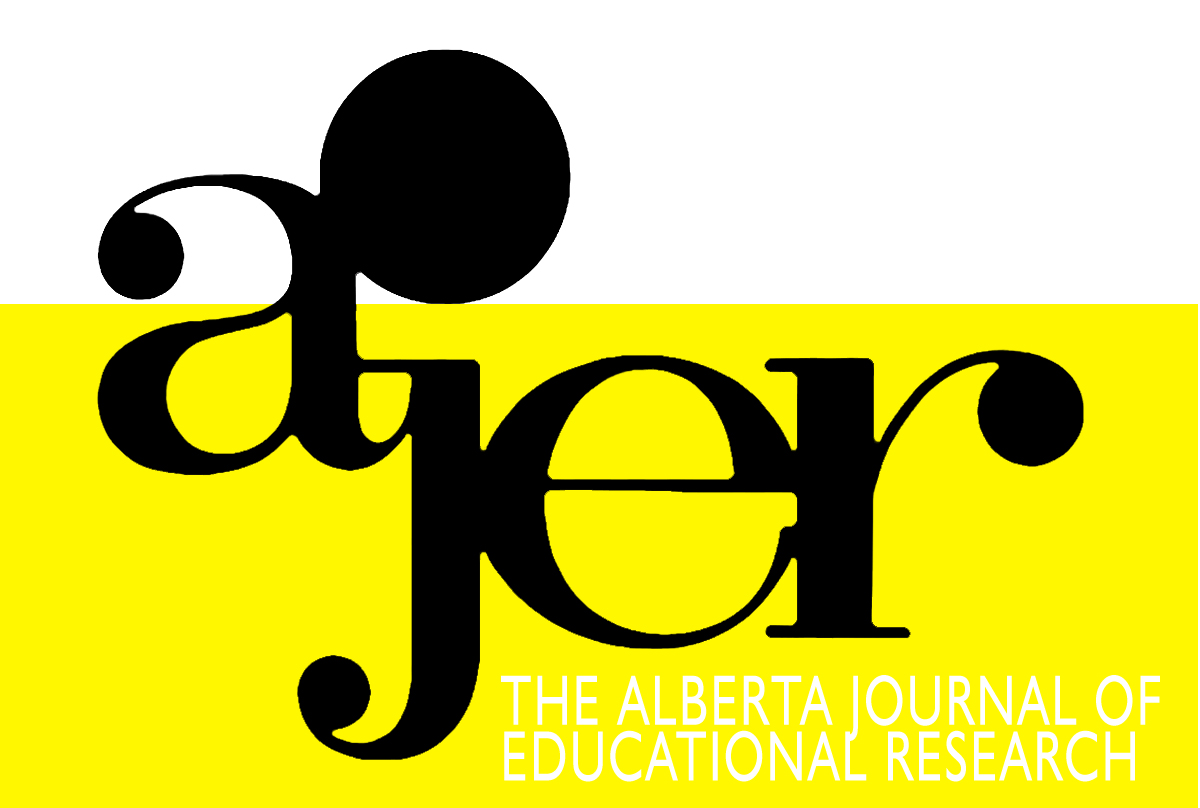New Teacher Perceptions of Inclusive Practices: An Examination of Contemporary Teacher Education Programs
DOI:
https://doi.org/10.55016/ojs/ajer.v61i3.56075Keywords:
Inclusion, Teacher Education, Special Education, Mots clés, inclusion, formation des enseignants, enseignement spécialiséAbstract
This article details a sequential explanatory mixed-method study into the perceptions of 44 new teachers regarding inclusive practices from their teacher education program, as well as their relative intent to utilize them in their practice. The purpose of this study was to determine the self-perceived capacity of the next generation of teachers leaving a Canadian teacher education program from a mid-sized university in Southern Ontario. As new teachers are the product of contemporary teacher education programs, their lingering needs and perceptions are potential avenues for intervention in continuing the refinement of teacher education. First, a complete audit of relevant teacher education was performed, followed by participants completing a mixed-methods survey. Then, these survey findings informed critical-case interviews. Analyses yielded two groups of themes: confidence from teacher education, and the lingering needs of new teachers. These data suggest that teacher education programs are not entirely effective at producing new teachers who are confident in their abilities to be inclusive practitioners in the classroom. Further, the perceptions of new teachers illustrate avenues for intervention in making teacher education programs more effective.
Cet article présente en détail une étude exploratoire à méthodologie mixte portant sur les perceptions de 44 nouveaux enseignants quant aux pratiques inclusives de leur programme de formation et leurs intentions de les intégrer à leur pratique. L’objectif de cette étude était de déterminer l’auto-évaluation qu’établit la prochaine génération d’enseignants de leur capacité au terme de leur programme de formation dans une université de taille moyenne dans le Sud de l’Ontario. Les nouveaux enseignants étant le produit des programmes de formation contemporains, leurs perceptions et leurs besoins persistants représentent des pistes d’intervention possibles pour l’amélioration continue de la formation des enseignants. Une vérification complète des programmes de formation en question a d’abord été effectuée. Les participants ont ensuite complété un sondage à méthodologie mixte. Par la suite, les résultats du sondage ont servi dans les entrevues portant sur les cas importants. Les analyses ont fait ressortir deux grands thèmes : la confiance des enseignants relative à leur programme de formation et les besoins persistants des nouveaux enseignants. Ces données laissent supposer que les programmes étudiés ne sont pas entièrement efficaces dans la formation d’enseignants quant à leur confiance d’intégrer des pratiques inclusives dans leurs salles de classe. Les perceptions des nouveaux enseignants offrent des pistes d’intervention visant l’amélioration des programmes de formation.
Downloads
Published
Issue
Section
License
UNIVERSITY OF ALBERTA COPYRIGHT LICENSE AND PUBLICATION AGREEMENT
If accepted, authors will be asked to sign a copyright agreement with the following points:
A. Where there is any inconsistency between this Copyright License and Publication Agreement and any other document or agreement in relation to the same subject matter, the terms of this Agreement shall govern.
B. This document sets out the rights you are granting in relation to publication of your article, book review, or research note entitled (the “Article”) through inclusion in the academic journal titled Alberta Journal of Educational Research (the “Journal”) published through the Faculty of Education, representing the Governors of the University of Alberta (the “Journal Editor”).
C. There will be no payment to you for this publication and grant of rights. In consideration of the agreement to publish the Article in the Journal:
1. You are warranting that:
- the content of the Article is your original work, and its content does not contain any material infringing the copyright of others; or, where the Article is not entirely your original work, you have obtained all necessary permissions in writing to grant the rights you are giving in this agreement;
- the content of the Article does not contain any material that is defamatory of, or violates the privacy rights of, or discloses the confidential information of, any other person;
- the Article has not been published elsewhere in whole or in part, and you will not allow publication of the Article elsewhere without the consent of the Journal Editor;
- the names of all co-authors and contributors to the Article are:
2. You agree to license the copyright in the Article to the Journal Editor, on a worldwide, perpetual, royalty free basis; and to the extent required by the terms of this agreement. You shall retain the right at all times to be acknowledged as the/an author of the Article.
3. You further agree that the Journal Editor has the entitlement to deal with the Article as the Journal Editor sees fit, and including in the following manner;
- The right to print, publish, market, communicate and distribute the Article and the Journal, in this and any subsequent editions, in all media (including electronic media), in all languages, and in all territories, ing the full term of copyright, and including any form of the Article separated from the Journal, such as in a database, abstract, offprint, translation or otherwise, and to authorize third parties to do so;
- The right to register copyright of the Journal;
- The right to edit the Article, to conform to editorial policy as the Journal Editor sees fit.
4. If any co-author or contributor to the Article does not sign this agreement, the Journal Editor reserves the right to refuse to publish the Article.



